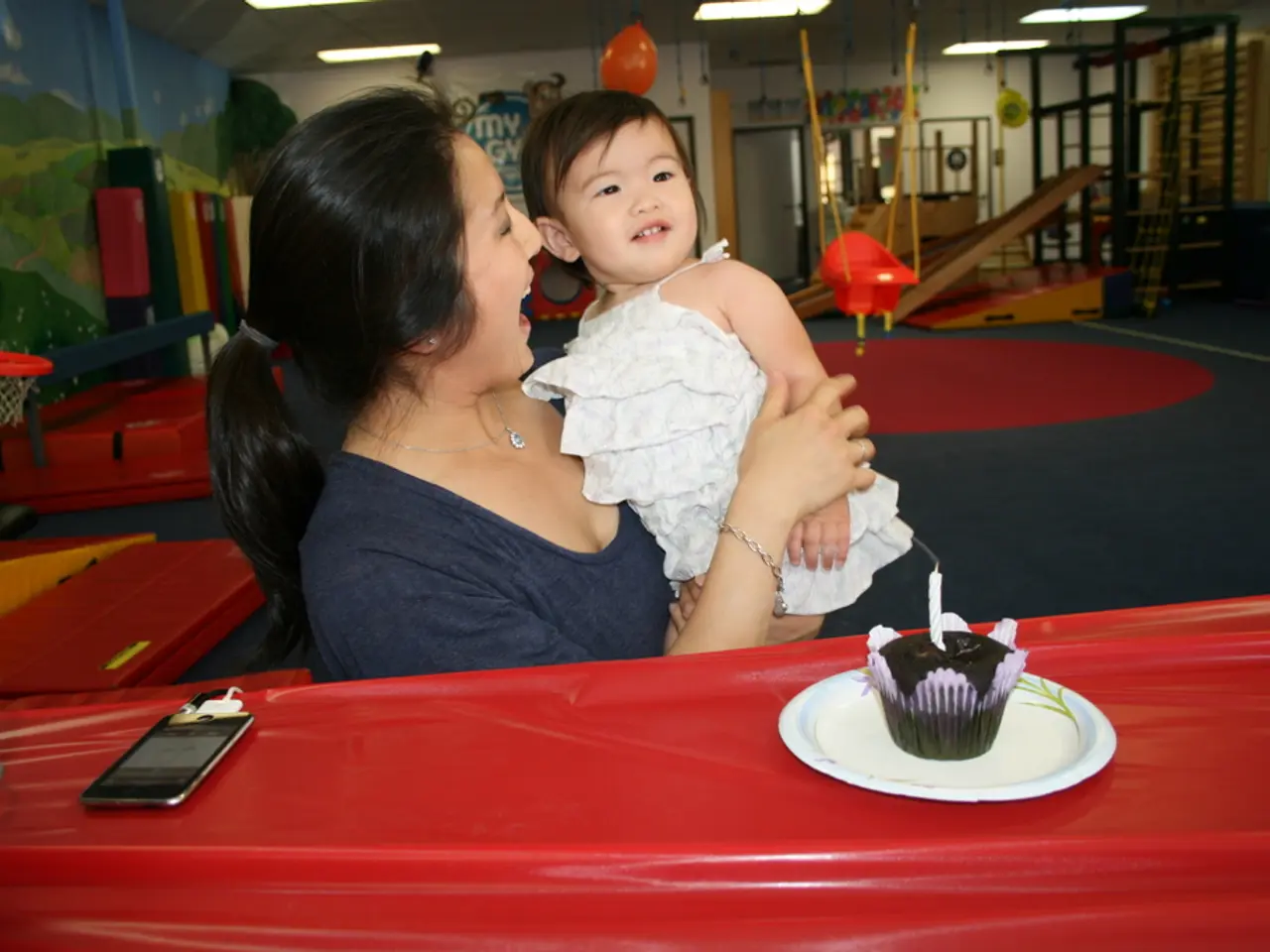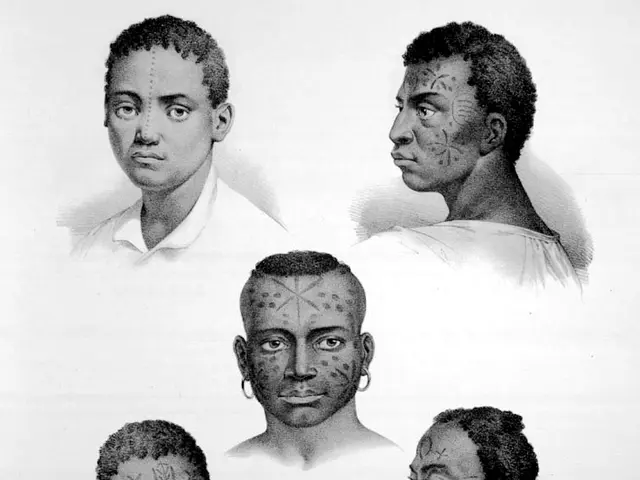Influence of Culture on the Developmental Stages of Nigerian Infants
In the vibrant and diverse nation of Nigeria, cultural influences play a significant role in shaping the development of its youngest citizens. From language acquisition to socialization, these cultural dimensions contribute to the holistic growth of Nigerian babies, fostering their physical, emotional, cognitive, and social development.
Cultural diversity significantly influences language acquisition for Nigerian babies, shaping cognitive processes essential for future learning. Exposure to multiple languages from an early age, including English and local languages like Igbo, Yoruba, and Hausa, enriches a child's worldview and fosters inclusivity.
The traditional practice of baby carrying, common in Nigeria, promotes close physical contact between caregivers and babies. Babies are often tied on the caregiver’s back or chest with cloth, supporting emotional bonding, security, and physical development by allowing continuous interaction and responsiveness to the baby’s needs.
Breastfeeding is culturally prioritized, and efforts exist to strengthen environments supportive of optimal breastfeeding practices. Proper nutrition during infancy is critical for physical growth and cognitive development.
Child-rearing is typically a collective endeavor involving extended family and community members. Social interactions across generations foster socialization, cultural identity, and language development, critical for holistic growth.
Formal education starts around age five and integrates indigenous languages and cultures, helping children develop a sense of cultural identity and cognitive skills. The Universal Basic Education scheme emphasizes early childhood care as part of a nine-year uninterrupted schooling process, nurturing intellectual and social development.
While some cultural practices support child development positively, others such as certain norms around physical discipline can affect emotional wellbeing. Challenges related to child rights and protection are embedded in structural inequalities and traditional beliefs in some regions, shaping the environment in which children grow.
Embracing and understanding cultural influences is pivotal for Nigerian parents. Learning about cultural roots empowers parents to pass down meaningful traditions and foster a strong sense of identity and belonging in their children. As Nigeria becomes more globalized, Nigerian babies may face challenges in balancing their cultural traditions with modern practices.
Education holds immense importance in Nigerian culture, with parents emphasizing academic achievement and access to quality education. Celebrating differences cultivates respect, empathy, and a sense of belonging, enriching a child's worldview and fostering inclusivity.
In conclusion, the cultural dimensions that shape Nigerian babies' holistic growth blend physical care, nutrition, learning, emotional support, socialization, and cultural grounding essential for overall development. Parents are urged to explore their heritage and understand how it shapes their parenting, fostering the next generation of Nigerian children who are rooted in their cultural heritage yet equipped to navigate the globalized world.
[1] Source: Cultural Influences on Child Development in Nigeria
[2] Source: Universal Basic Education Commission (UBEC) in Nigeria: The Role of Early Childhood Care Education
[3] Source: The Role of Family and Community in Child Development in Nigeria
[4] Source: Breastfeeding Practices in Nigeria: Challenges and Opportunities
[5] Source: Child Rights and Protection in Nigeria: Challenges and Opportunities
- A child's worldview gets enriched through exposure to local languages like Igbo, Yoruba, and Hausa, alongside English, thanks to the diversity of Nigeria's cultural influences.
- The practice of baby carrying provides emotional bonding, security, and physical development for Nigerian babies by facilitating continuous interaction and responsiveness to their needs.
- Prioritizing breastfeeding and creating supportive environments for optimal breastfeeding practices is crucial for a baby's physical and cognitive development.
- Child-rearing in Nigeria is often a collective effort, involving extended family and community members, fostering socialization, cultural identity, and language development.
- Formal education starts around age five in Nigeria, incorporating indigenous languages and cultures, which helps children develop a sense of cultural identity and cognitive skills.
- Certain cultural practices in some regions can negatively impact emotional well-being, according to research on child rights and protection in Nigeria.
- As Nigerian parents engage with their cultural roots, they empower themselves to pass down meaningful traditions and foster a strong sense of identity and belonging in their children.
- Nigerian babies may have to navigate balancing their cultural traditions with modern practices as Nigeria becomes more globalized.
- Education takes a prominent place in Nigerian culture, with parents emphasizing academic achievement and access to quality education, while celebrating differences cultivates respect, empathy, and a sense of belonging.
- Since the Universal Basic Education scheme includes early childhood care as part of a nine-year uninterrupted schooling process, the emphasis is on nurturing intellectual and social development.
- Understanding the impact of cultural influences on parenting, holistic growth, and various lifestyle aspects, such as fashion-and-beauty, food-and-drink, children's health, home-and-garden, relationships, travel, education-and-self-development, and personal-growth, is essential for effective childcare in Nigeria.




